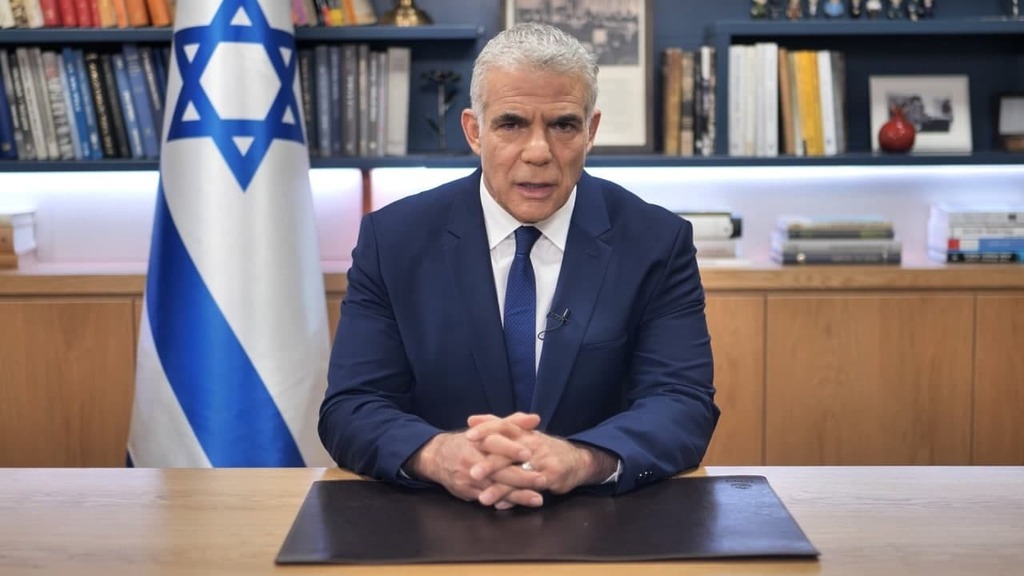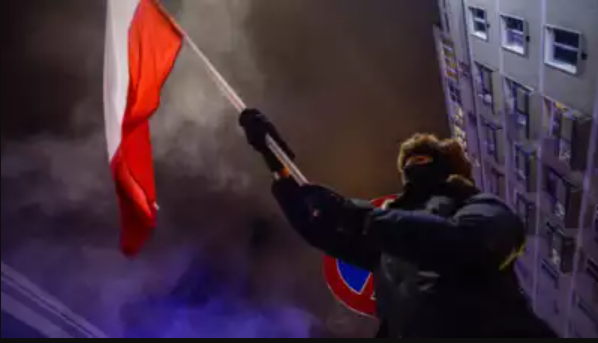Getting your Trinity Audio player ready...
Polish Deputy Foreign Minister Paweł Jabłoński on Monday said that the country would reexamine educational trips by Israeli youth for allegedly spreading hatred of Poland as the diplomatic feud over the passing of a Holocaust restitution law continues.
"Educational trips from Israel to Poland do not take place in a proper manner [and are conducted] in a way that hatred of Poland sometimes seeps into the minds of young people. We will examine the issue in depth because it is clear that the way these tours take place is not the right way," Jabłoński said.
5 View gallery
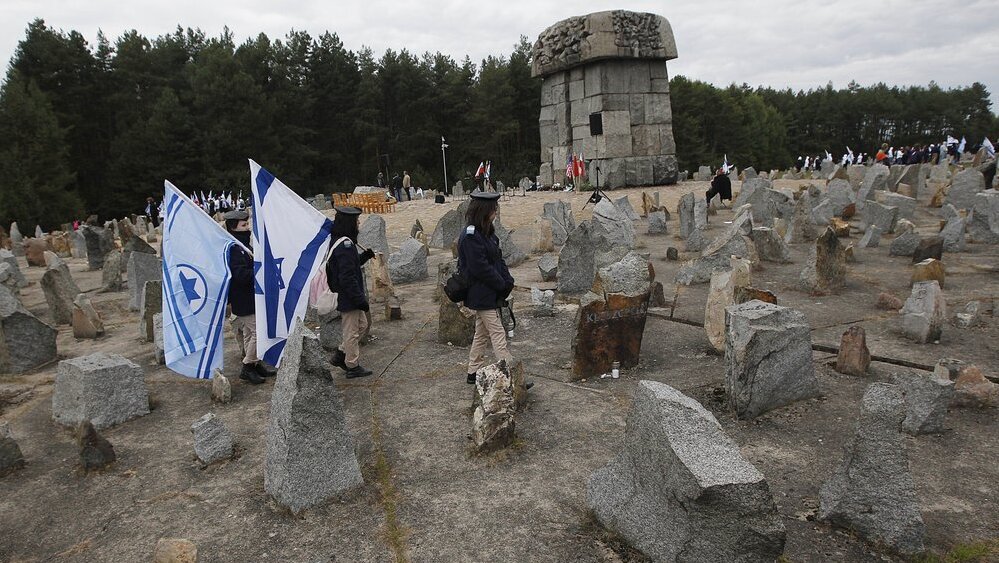

Israeli youths with their national flags march by the monument to some 900,000 European Jews killed by the Nazis between 1941 and 1944 at Poland's Treblinka death and labor camp
(Photo: AP)
He accused Israel of fostering "anti-Polonism," or prejudice against Poles as an ethnic group and the state of Poland and its culture, according to Polish media.
Polish President Andrzej Duda on Saturday signed into law a bill passed by Poland's parliament earlier in the week that severely restricts the ability of Jews to recover property seized by Nazi German occupiers and retained by post-war communist rulers, despite strong opposition from Israel and the United States.
Prime Minister Naftali Bennett called the signing of the law “a shameful decision and disgraceful contempt for the memory of the Holocaust” and said that “Poland has chosen to continue harming those who have lost everything.”
Foreign Minister Yair Lapid said that he had instructed Israel’s charges d’affaires in Warsaw to return home immediately and the new Israeli ambassador to Poland to stay in Israel.
5 View gallery
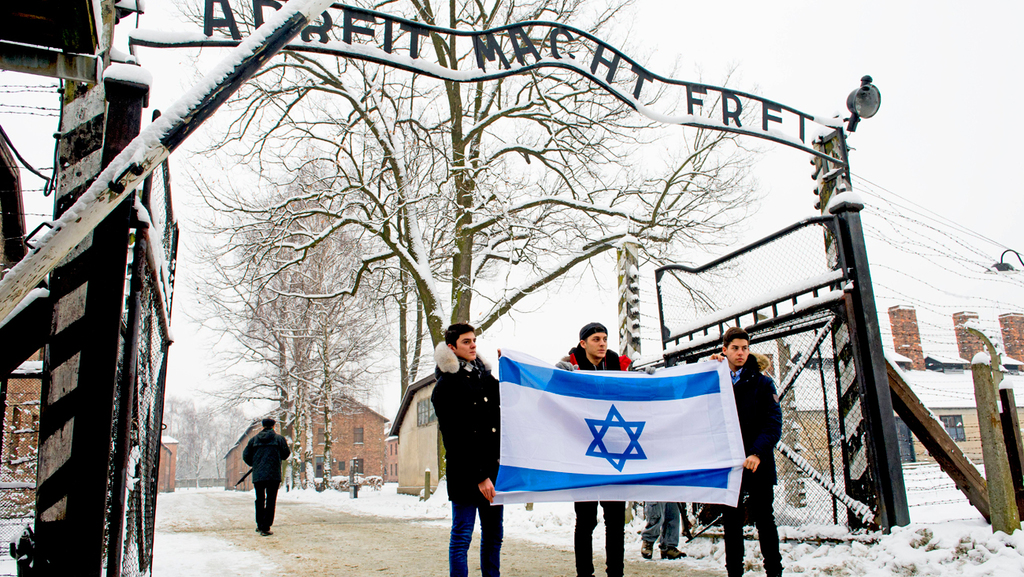

Youths holding the Israeli flag in front of the gate to the Auschwitz concentration camp
(Photo: MCT)
The Foreign Ministry also said that it was recommending the Polish ambassador to Israel, who is on vacation, to not return to Israel.
Poland's government said in response that its ambassador to Israel will remain in Poland until further notice after the Jewish state downgraded diplomatic ties with Warsaw due to the restitution law.
Poland's Foreign Ministry said Monday that Ambassador Marek Magierowski would stay in Poland until further notice in response to what it called "unjustified actions" by Israel and "unacceptable statements" by Lapid and other government members.
The dispute is the latest to erupt over history between Poland, home to Europe's largest Jewish community before World War II, and Israel, which was founded as a safe haven for Jews driven from Europe by German dictator Adolf Hitler and his helpers.
5 View gallery
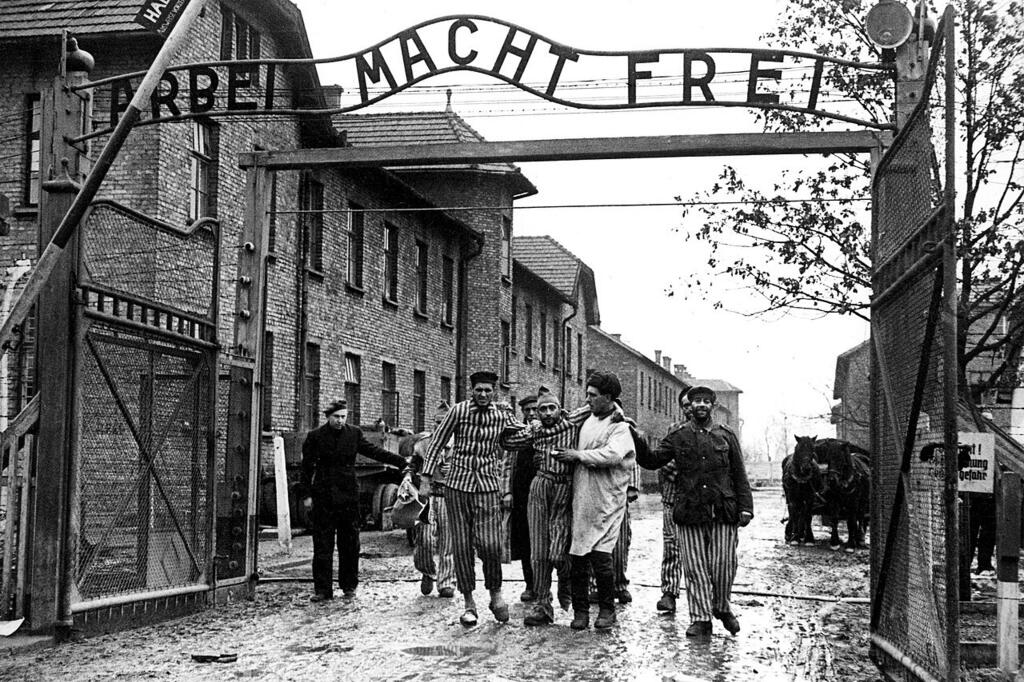

Soviet soldiers liberating the Auschwitz concentration camp in Poland
(Photo: Getty Images)
An earlier crisis broke out in 2018 over a Polish law that would have criminalized false claims of Poland collaborating with Nazi Germany. Israel saw it as an attempt to whitewash Polish crimes against Jews during the Holocaust. The legislation was eventually watered down.
"The negative impact on our ties began the moment that Poland chose to begin passing laws aimed at harming the memory of the Holocaust and the Jewish people in 2018," Lapid said on Sunday. "Gone are the days when Poles harmed Jews without consequence."
The new legislation establishes that any administrative decision issued 30 years ago or more can no longer be challenged, meaning that most property owners who had their homes or business seized in the communist era can no longer get compensation.
Israel says Poles today are profiting from the homes and businesses which were taken first by Nazis and then by the Polish communist regime.
Poland argues that it was the victim of Germany and does not bear responsibility for the consequences of the original seizure of properties.
Morawiecki on Monday defended the law, arguing that it was needed to fight fraud carried out by criminals who have claimed in courts to represent prewar owners, thus gaining ownership of valuable properties to which they had no rights.
"Wild re-privatization has led to many human tragedies in Poland. Tens of thousands of people have been thrown out of the homes in which they have lived all their lives — just because there was a law in our law that allowed for an indefinite 'return' of real estate," Morawiecki said.
He said the new law "restores elementary justice and the rule of law in Poland."
The law does not distinguish between Jews and non-Jews, and the vast majority of those who will be affected by the legislation are expected to be non-Jews.
Nonetheless, the issue looms large in relations with Israel and with the United States due to the determination by both countries — as homes to many Holocaust survivors — to defend their interests.
Article republished with permission from i24NEWS


